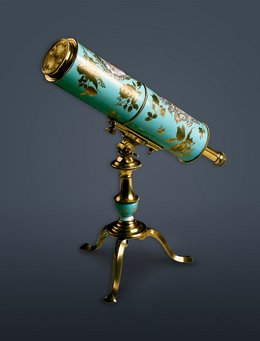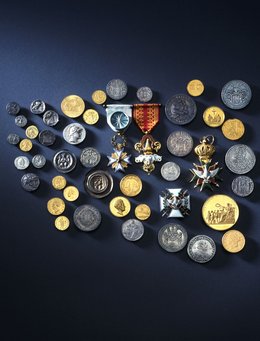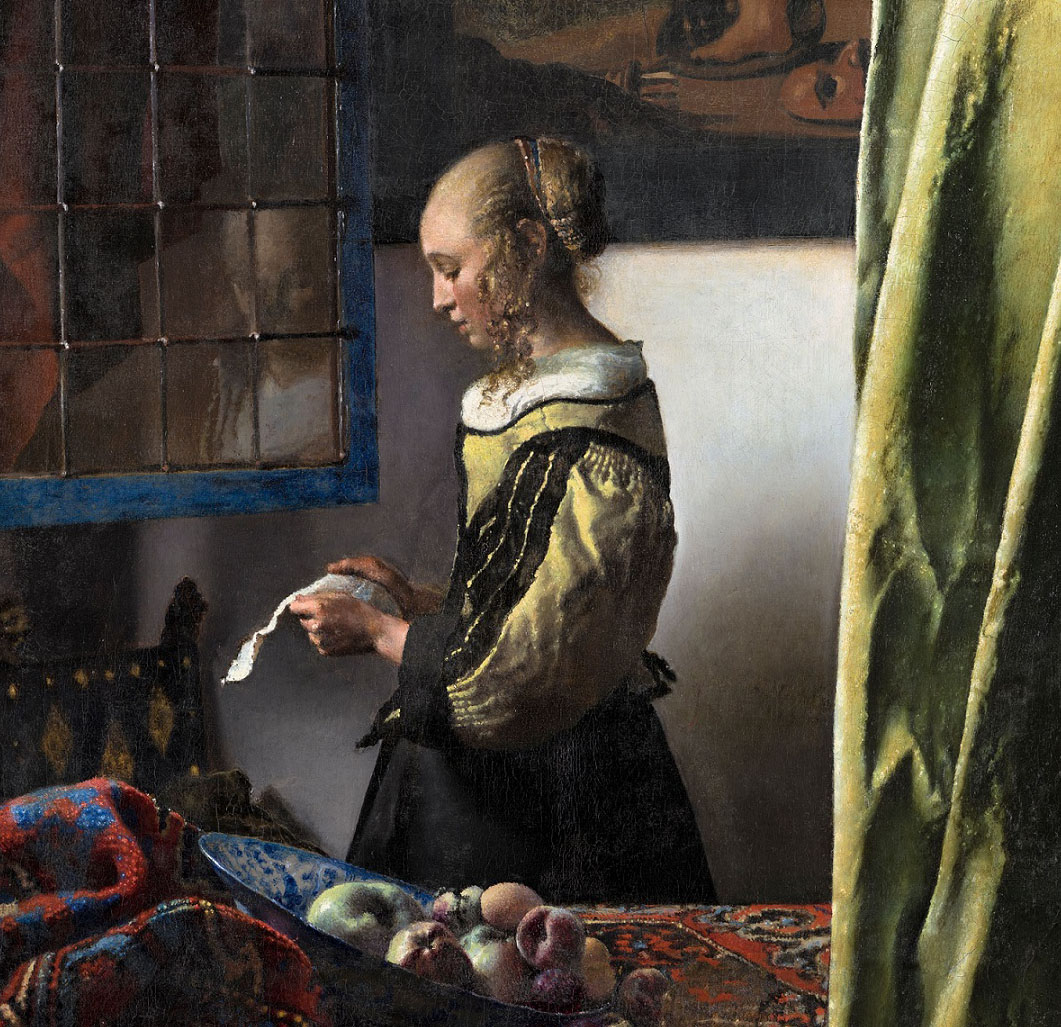In diesem Raum
In this room, you can hear many things: coral reefs, the rainforest, and sawmills, but above all, the islands' inhabitants. They tell their stories, which often go back to when the archipelago was a British penal colony and their ancestors from all parts of the world were deported there. The interlocutors with African, Southeast Asian, or Indian family biographies address environmental pollution, earthquakes, and the effects of tourist mega-projects.
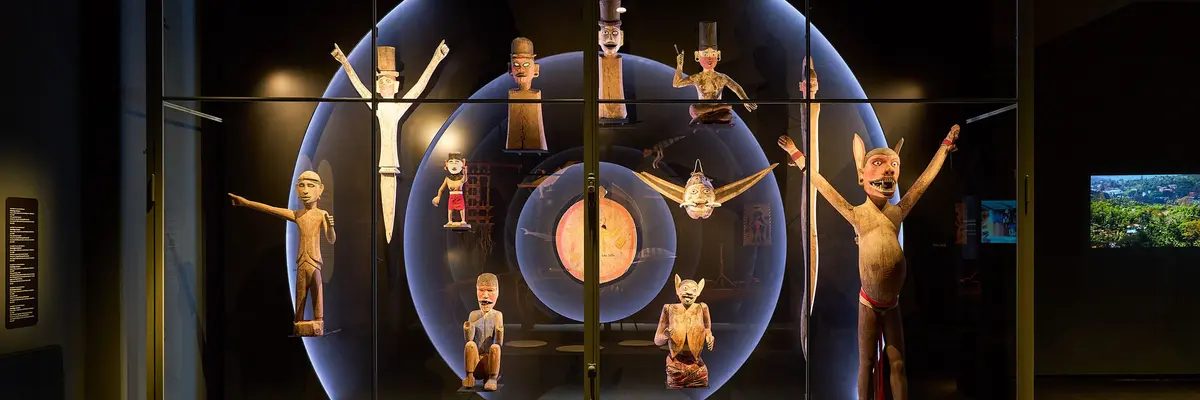
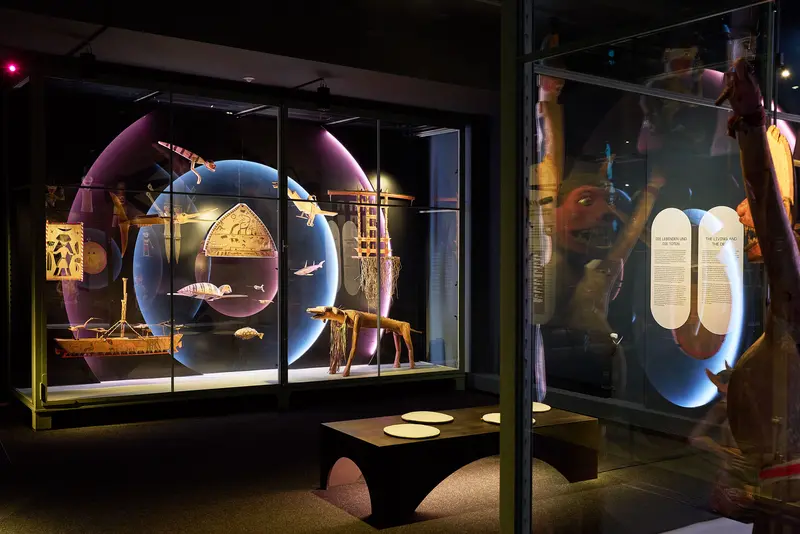

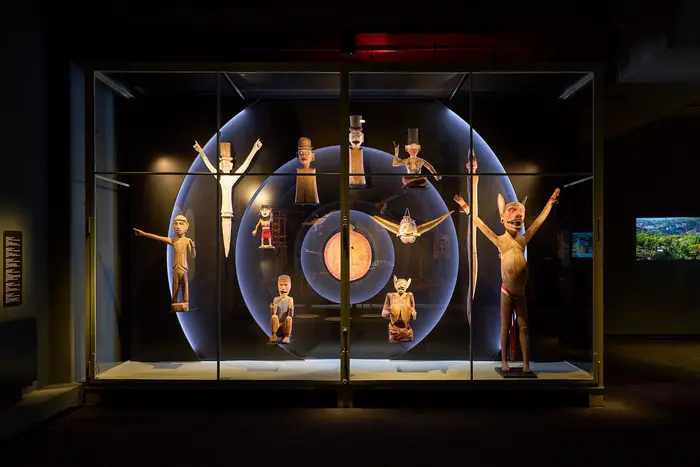
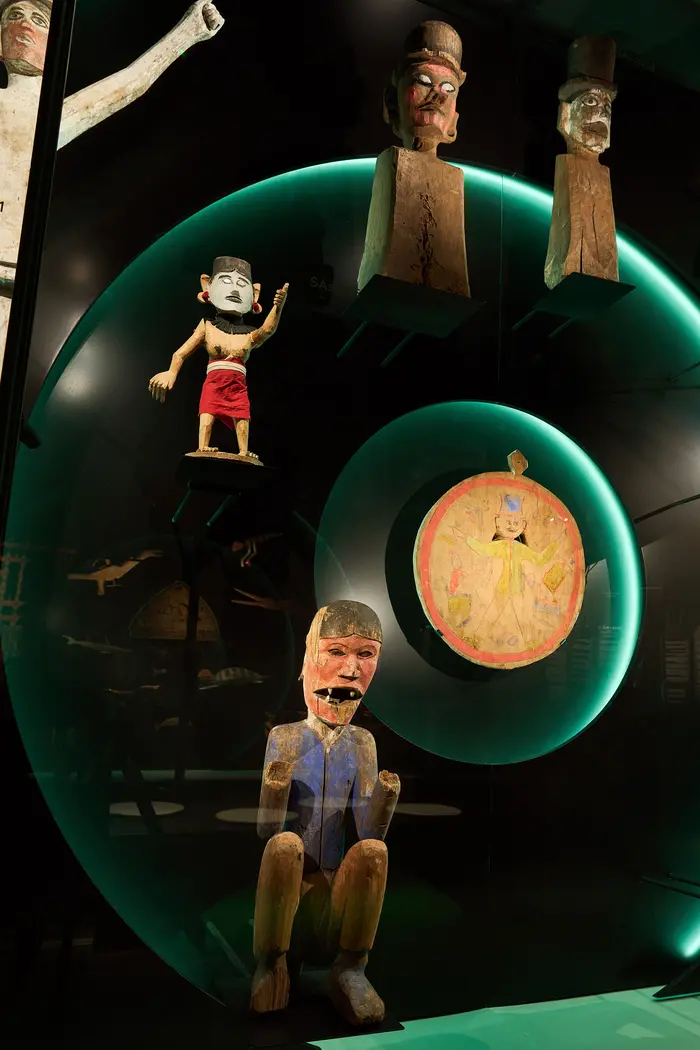
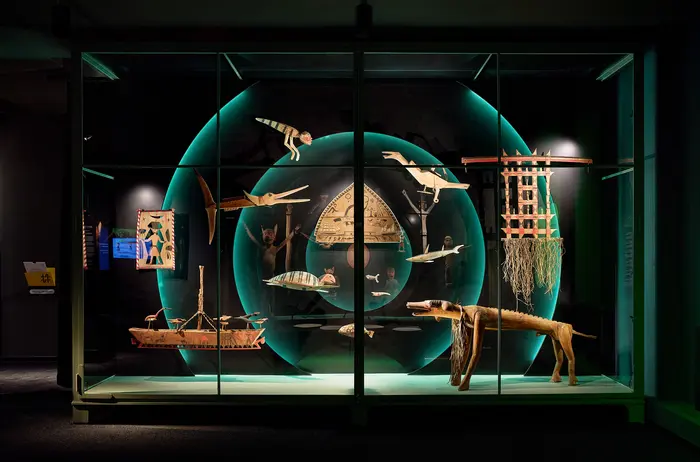
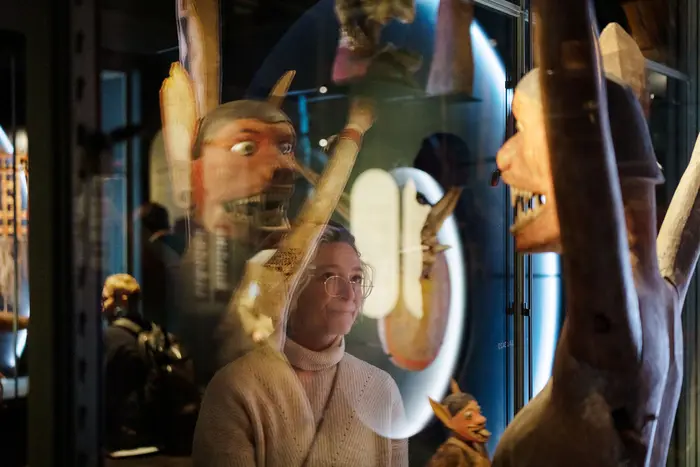
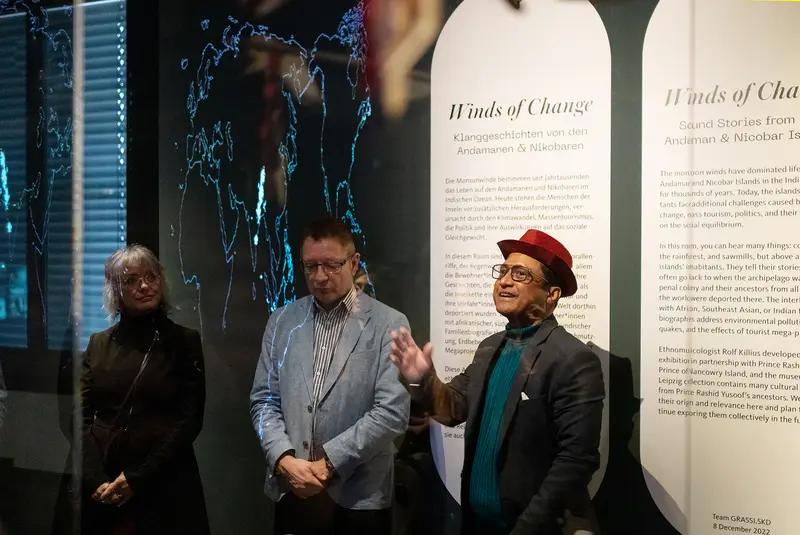

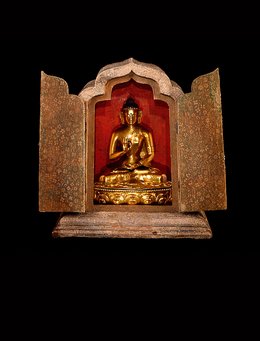
![[Translate to English:] Damaskuszimmer reich verzierte Holztür mit Fenster](/fileadmin/_processed_/e/8/csm_museumvoelerkundedresden-damaskuszimmer-ausstellungsteaser_portal_bafc63a688.jpg)
